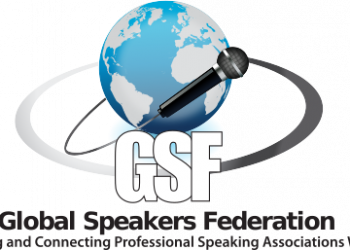“A bicycle and Ferrari will run at the same pace at 20 kmph, it’s not about the car it’s about the driver.” – Mulk Raj Sakhuja
My upbringing is a simple one and I am extremely grateful to my parents for that. In a family that consisted of nine people, it was not easy to show your presence. Being the youngest I did get attention but that was for being the cutest of all.
When you have eight levels of approval within your family (a family that is conservative and traditional) to do something it takes up a lot of energy. Energy in terms of influencing and persuading each family member to agree with what you want to do. And it never helps you being the youngest (the ninth family member).
In my younger years, I struggled with influencing and persuading my family members and that had an impact on how I interacted with people outside the family. I have been given the label of an introvert and then there are those who say I am out and out extrovert. Yes, it is somewhat confusing. The fact is that in school, university and through my life I did struggle. This had a negative impact on my career and personal life. And to be honest sometimes to date that struggle does surface.
The first person to ever make me aware of this so-called “Executive Presence” was my father in law. My father in law had a perspective about life that was poles apart from many. He went through some traumatic situations. Such as the Partition of India in 1947 that accompanied the creation of another country, know as Pakistan. To cross the border into India, to be pushed forcefully into your panic zone, to never see your father again (no one till date knows what happened to his father while crossing over to India in 1947). To top it given a refugee status in your own country with many more painful situations must have been tough on him.
My father in law taught me the essence of executive presence. He had learnt it through the ups and downs of his life. Having a fancy phrase like “Executive Presence” was not in his dictionary. All he knew was each individual needs to have a sense of “that presence”, what he called “JIGRA”. And in his books that meant:
- Leading and influencing yourself with great zeal
- Energetically use your inner strength to get things done
- Allowing yourself to connect with your true feelings
- Being decisive especially in tough situations
“JIGRA” is an Indian word that means kind-hearted, a symbol of love and affection. It goes beyond that; it actually refers to being of a brave heart. And brave heart means to have that inner courage/ strength, to be in spirit to pass through the adversities of life with enthusiasm. Such a state makes others perceive you as being without fear, fearless. That was my father law, a man of JIGRA, a man of immense executive presence. The man with the “magic wand” who would find the practical solution to the problem that one was facing. And his three children radiate of that JIGRA.
From his teachings, observation of others and my experience it is evident there are numerous lies and myths about executive presence.
The six lies and myths that standout the most are as follows:
1. It Is Only For Seniors – Unfortunately, across the globe, many are delusional and say that executive presence is for seniors, executives or leaders. The truth, it is a strength that is needed at all levels (cleaner to the CEO). A strength that could allow anyone to advance in his or her career, business and life. In fact, from a young age we need to teach our children to lead themselves in any given situation. Such an example is my colleague from my mid-20s. Ken Eder stood out in four simple (but very profound) things about executive presence. Both of us are from different backgrounds, experiences and cultures. From the moment we met there was mutual respect, rapport and trust between both of us. The four things that stood out about his executive presence was listening with attention, critical thinking by integrating the brain, heart and mind, then there was speaking with confidence and finally, it was about amplifying one’s emotional intelligence. It does not matter if you labelled yourself as an introvert or an extrovert. Both labels have the ability to ooze executive presence. Yes, it is required for seniors, executives or leaders but it is a strength that is needed at all levels. Children, teenagers, women, men, parents, everyone requires executive presence.
2. Always Be Vocal and Loud – Expressing your opinions and feelings is definitely a strength for someone who has executive presence. That is not at all same as being always being vocal and loud about your opinions and feelings. The difference is that a person with executive presence expresses him or herself with assertiveness and has great foresight about the situation or person before uttering a word. They interact in a manner that builds bridges rather than walls. In 1992 I met an amazing example of a person who has such a persona. I call him my best buddy. Alpesh Karena is the silent type but when he speaks you know the truth, volume and wisdom are in his words. It is not just talk. Many times in university he had been the mediator for me when I use to explode like a volcano, he would intervene and save the day. His “less is more” innate approach did the magic; he had the respect of all the students and factuality. The simple philosophy he goes by is that silence is a source of great strength.
3. It Is All About Gravitas – I love the word gravitas; it immediately reminds me of the word gravity. In other words, executive presence is all about strength. This is an absurd notion. Having gravitas (a quality that shows natural authority) is certainly important. Levitas (a quality that can lighten the mood) is equally important, the warmth of the person. And then there is decisiveness (having that higher emotional intelligence to stay calm in tough situations). In the other words, when you connect with others do you have it, the x-factor? Are you demanding (domineering/ tyrant with an ego) or commanding (worthy of respectful/ person of integrity)? Are people willing to stop and listen when you speak (not out of fear or the title you hold)?
4. Outside Matters Most – Your executive presence begins from the inside out. There is a great focus about it is the way you communicate with others and your appearance but that is partially true. There are three elements to be aware which I call IKO. These being:
- Inner Self – Always focus on creating, developing and managing a compassionate mindset. The way one thinks and feels has a dramatic effect on one’s actions.
- Knowledge – Ensure when you communicate have a clear structure. Your ability to show your presence depends on how with clarity you project and share your message.
- Outer Self – The way you use your body language, voice, words and your appearance impacts the interaction with the others.
In other words, style impresses but without substance style is worthless.
5. Be Emotionless – Sadly, this is something that is being taught by many managers and leaders to the up and coming future leaders and managers. In fact, form the conversations I have had with many (this includes the generation who have been labelled millennial) they mention that their parents and teachers told them never to show your emotions. That showing your emotions makes one weak. This is one of those pathetic conditionings that to date is being ingrained from one generation to the next. The likes of Nelson Mandala and Dr Martin Luther King Jr are strong testimonials of how through their emotions they led and inspired a whole nation. Till date, they inspire the whole world. They let their compassion take over and left a legacy for human development, suitability, respect and wisdom. They had the ability to tap into managing their emotions, especially under highly stressful and life-threatening circumstances.
6. Don’t come to me with problems, come with solutions – One of my line manager’s uses to say this phrase all the time. Initially, it made me cringe, with time passing by the statement made me angry but now it just makes me laugh. A management and leadership mantra that is condescending and it makes team members feel inadequate about their abilities. One of the toughest traits to work upon in executive presence is being decisive and incisive (intelligently analytical and clear-thinking). Firstly, yes it means to have the ability to get things done through thoughtful thinking. Secondly, it also means assisting the people you may be leading or influencing in developing their sense of making decisions. That means to be their mentor, coach or guide in resolving issues or challenges that they find tough or difficult to resolve (yes, they could be simple for you but though for them). A parent, guardian or caretaker of a child holds a child’s hand when the child is learning to walk. Then they slowly let go of their hand so that the child could attempt to walk on their own. Still, they are around to encourage the child and with time the child learns to be independent. If your aim is to show a credible and memorable executive presence then you have to show them how it done and not leave them in a stressful situation. Get the “magic wand” out and be ready to serve.
JIGRA, that executive presence is not something that magically appears out of thin air. Some people are aware of it from a young age as they are amongst the company of people who condition them in such a way.
For many such is not the case and like me stumble upon it. I was fortunate enough to be in the company of my father in law to just get a glimpse of it for a couple of years before he departed this world. On the other hand, I am still fortunate enough to see the legacy of his JIGRA being carried through his three children.
Remember ever teacher was once a student and they were a disaster, to begin with. A strong presence requires clarity in knowing yourself, believing yourself and trusting yourself. Having JIGRA will 100% elevate your success and at the same time, it will make others feel your presence even when you are not around them.
“I’ve learned that people will forget what you said, people will forget what you did, but people will never forget how you made them feel.” – Maya Angelou
I serve people and organisations focus upon the most important leadership attributes, and inspire to develop their own unique formula for success mastery. Connect with me or book me to be inspired by developing an executive presence that leads to your own unique formula of success mastery.
Global Conference & TEDx Speaker on Executive Presence – Offering Trust & Compassion To Achieve ROI – Delivery Experience 25+ Years | Best-Selling Author®
- Email: [email protected]
- Website: https://www.roitalks.com/
- YouTube: https://lnkd.in/f8fDhm6
- LinkedIn: https://www.linkedin.com/in/rohitbassi/



